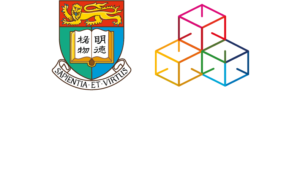Ms Qian Li
Former senior director-corporate communications, Budweiser Brewing Company APAC
Alumni Profile
What are the key differences in your perception when someone expresses interest in ‘studying ESG’ versus ‘learning about sustainability’ and its potential impact on their career path?
After I joined the programme, I learned how to bring powerful evidence to show what a corporation could do from an ESG perspective, using the language of the stakeholders—normally the regulators and investors—to understand the corporation’s efforts in ESG. At the same time, using frameworks, for example, the CDP disclosure or the MSCI disclosure, helps bring the cross-functional teams together. Every company wants to have a higher rating, so using that to prove there is financial value creation if you choose sustainable solutions for the environment, but also if you have good social programs for safety and for talent acquisition, you can attract more talent and improve your workforce efficiency. To me, governance is the foundation for having a good programme, so the governance of the board, with compensation linked to sustainability or ESG performance, shows how much you can improve and attract more investors. That’s how I apply this programme’s knowledge to my daily job, and that’s how I helped double the ESG rating within a year by using the institutional frameworks and science-based data to bring narratives into value creation.
How can the benefits of a program like the SLGP be explained to demonstrate its relevance to all functional roles within the organization?
During this programme, I wanted to practice ESG, and I landed this job. I explained that the sustainability we learn about is at the top level of the international frameworks, including both Hong Kong and other Exchange Markets, and those different frameworks are relevant to your business, especially if you’re an MNC. The second thing I learned was some practical methodology about ratings. We were taught how to actually prepare CDP and other ratings using the company’s existing materials or existing programs. The third thing I learned was quite a lot of corporate governance knowledge at this programme and how to actually make an effective board and how board directors actually work with the management committees.
How can NGOs, benefit from having employees participate in a program like the SLGP? What specific advantages might it offer to the third sector?
There is quite a lot of technical aspects to carbon emissions or smart agriculture, so the knowledge part is very important if we can talk in a common language and build the programme together. I think for the NGO partners, if they equip themselves with the knowledge of what the corporate world is looking for, and what the real benefit is to the corporation by working with the NGOs, it would be beneficial.
What key message would you give to an employer regarding hiring sustainability talent?
I would tell the employer that the value I can bring with my knowledge and background is to showcase that ESG and sustainability can bring social value, economic value, and business value to the business. Using the technical aspects, you can see how much you reduce the carbon footprint or how energy-efficient you are. Now it’s very popular with AI, and how to govern the data collection is very new, but it all comes back to the sustainability concept and back to the ESG perspective, so we need to keep learning and be interested in new things.
What is one key observation or one major takeaway that participants typically report from the program?
The course offered me different case studies and different concepts from various sectors. Even the classmates were from different backgrounds with different perspectives. People will have different perspectives and come up with better solutions or better ideas. But the most important takeaway is the alumni resources. My classmates are still friends, and we have coffee chats every week. This is a good memory and a good asset for us.


